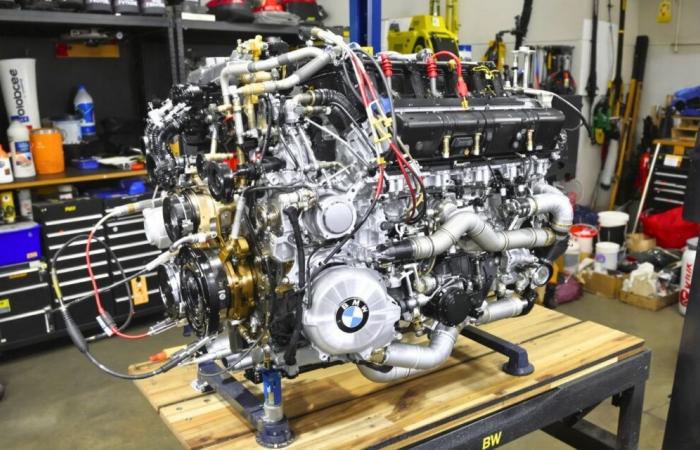BMW makes a radical breakthrough: abandoning electric vehicles in favor of hydrogen engines!
In a bold shift for the automotive industry, BMW is now directing its efforts towards hydrogen fuel cell technology, promising to revolutionize sustainable mobility with a solution offering zero emissions and reduced charging times. This pivot to hydrogen could well redefine the future of transport, especially for heavy vehicles and long distances.
Also read:
The advantages of hydrogen engines
Hydrogen engines stand out for several key advantagesin particular their ability to produce zero emissions. Their only byproduct is water vapor, making them an environmentally friendly alternative to internal combustion engines. Additionally, they offer much shorter refueling times compared to vehicles electric, which generally require long periods of charging.
BMW and hydrogen: A long-standing commitment
BMW has been exploring the possibilities of hydrogen for over 45 years. As early as 1979, in collaboration with the German Aerospace Center, BMW transformed a 1975 520/4 to run on hydrogen. This experimental vehicle proved that the use of hydrogen in a combustion engine was technically feasible, marking BMW's first steps in this direction.
BMW's first hydrogen vehicle planned for 2028
In 2028, BMW plans to launch its first production vehicle equipped with a hydrogen fuel cell. This initiative is part of a broader strategy including various propulsion solutions – electric, plug-in hybrid, gasoline, diesel, and now hydrogen – illustrating BMW's commitment to technological innovation and green energy solutions.
Use of hydrogen in internal BMW operations
From 2013, BMW integrated hydrogen into its internal operations with the implementation of the first hydrogen refueling station domestic in Germany, used for forklifts and towing trains at the Leipzig factory. This factory now has the largest fleet of fuel cell-powered industrial vehicles in Germany, with more than 130 vehicles.
An automated refueling station and innovations in production
BMW's Leipzig plant also has five hydrogen refueling stations for internal logistics, the most recent of which allows refueling fully automated. This plant also piloted new burner technology in its paint shop, using green hydrogen to complement natural gas.
Hydrogen vehicles as a complement to electric vehicles
Hydrogen vehicles are increasingly seen as a complement to electric vehicles in the quest for sustainable mobility. While electric vehicles have benefited from significant advancements in battery technology and infrastructure, hydrogen vehicles offer unique advantages in terms of rapid refueling times and increased range.
A golden future for hydrogen technology
The main challenge for automakers will be to develop sufficient infrastructure to support this technology. However, the continued evolution of electricity and hydrogen promises to work together to provide a range of diverse and effective solutions to reduce emissions and promote global sustainability.
This French giant surpasses Tesla with a car that shatters all autonomy records and would put an end to the supremacy of diesel and gasoline
This article explores BMW's strategic commitment to hydrogen technology, a move that could profoundly transform the transportation sector. With significant sustainability and efficiency benefits, hydrogen is well-positioned to play a crucial role in the future of green transport, complementing the electrification of vehicles for truly sustainable mobility.
Source: BMW






